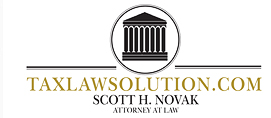For offshore accounts, it’s time to report
Israeli banks included in the IRS crackdown on foreign investments
by Scott H. Novak
June 19, 2013
For those of you who have money in Israel or other overseas locations, now may be the time to step forward
— if it’s not too late.
For the past several years, the IRS has been aggressively going after people who have foreign bank accounts but have not properly reported them on their income tax returns or filed a separate form, due on June 30 of each year.
Why has this become an even greater concern to our community recently? Up until now, the IRS has been focused primarily on Swiss bank accounts, such as those at UBS. It appears that Israeli foreign accounts are now in the crosshairs of the IRS, starting with Bank Leumi. Last December, the bank advised its U.S. customers to begin to report their accounts to the U.S. government.
The IRS has very successfully been going after foreign account holders, getting large civil penalties and, in some cases, criminal convictions.
The IRS has a voluntary disclosure program that allows the holder of a foreign account to come forward and pay eight years of back taxes on the interest in the account plus “accuracy penalties” that equal 20 percent of the tax due. In addition, there will likely be a penalty of 27.5 percent of the highest account value. While this may not seem very appealing, it stacks up favorably when compared to the possibility of a prison term.
Why might it be too late for some to enter into the voluntary program? If a foreign bank has already given your name to the IRS, you cannot enter the program, even if the IRS has not yet contacted you. Bank Leumi announced that it has set aside $90 million to cover the costs of the U.S. investigation. It may be possible that it has already turned over or is about to turn over names.
Entering the offshore voluntary program is something that should be done with the advice of and assistance from an attorney. There is simply too much at stake, including up to three years in prison and penalties that can far exceed the account balance at the bank. There might also be limited instances where a foreign account holder is better off not
entering the program.
The fraud that the IRS will allege in a criminal case comes from checking “no” on the bottom of Schedule B of your Form 1040. Checking “no” indicates that you have no foreign accounts. There is also a second form, due on June 30, that tells the Treasury Department about any foreign accounts you have that exceed $10,000.
Consider stepping forward now to avoid running the risk of becoming embroiled in a difficult criminal investigation.
Scott H. Novak is a solo practitioner who has an office in Hackensack, where he specializes in helping people with their foreign account tax matters and all other tax problems with the IRS and the state.




